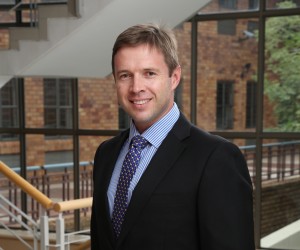As developers look for opportunities in larger mining projects in Africa, they face increasing levels of complexity that place new hurdles in their path - whose resolution cannot be rushed or ignored.
Speaking at SRK Consulting's 3600 Mining Perspectives seminar in Johannesburg last month, partner and principal engineer Andrew van Zyl said the mining future held great prospects for mineral development beyond the historical focus on gold and diamonds.
"Where the end-product of a mining operation can be easily flown out from a mine site, this lends itself to a fairly small operational footprint, a reasonably controlled environment, and a manageable number of interactions with the stakeholders around the mine," said Van Zyl.
"As you move towards bulk commodities, however, the scenario's complexity increases. With commodities like iron ore, mining operations start developing a substantial footprint - often becoming a strategically significant player in the host country's economic landscape regarding energy and water provision."
As an example of a large initiative in a small economy, he mentioned the Sundance iron ore project, on which SRK served as technical advisors to the government of Cameroon.
"This was conceived as a $7 billion project in a $25 billion economy, so it immediately becomes strategically important to the host country," he said. "The envisaged rail line, for instance, would be the first in several decades. A mining company taking on this scale of project must address myriad technical and contractual complexities that can't simply be contracted out; the relevant government agencies are going to want to interact with you directly on these matters, and you must have the insight and capacity to take on this responsibility."
This means more interaction with government and communities over detailed - and often thorny - issues ranging from compliance and infrastructure to resettlement, employment policies and social investment.
He said in many developing economies, there may be aspects of the legal framework which do not yet exist to accommodate the contractual minutiae that a large mineral project will entail.
"This makes certain activities or arrangements neither legal nor illegal," he said. "The starting point is then to be part of creating the legal basis for establishing whether and how the details of the project can be implemented. An example might be the mine's sharing of responsibility with state departments for a train line and load-out port."
Furthermore, mining companies must understand broad global trends if they want to grasp the kind of local pressures they will increasingly face. If Africa's population is still going to grow relatively rapidly, for instance, this will drive the demand for water, food and electricity. At the same time, communication technologies are getting faster, simpler, better and more effective.
"We need to ask: How is this going to affect the mining industry in general and the project in particular?" said Van Zyl. "Most of the world's as-yet-uncultivated arable land is in Africa; a growing population across the continent will compete for this with outside countries wishing to secure their own long-term access to food. Africa's low energy consumption per capita is another factor that will change dramatically as more capacity is installed, driving higher standards of living, better education and life expectations."
He said inelasticity of commodity supply in the current market suggested that prices would not move drastically in the short-term, so it remained difficult for most mineral projects to raise finance to launch new schemes. However, this limitation offered the time for vital conversations to take place between mining companies and their stakeholders.
"There is currently a valuable opportunity for companies to talk to governments, regulators, communities and other parties about projects and their implications," he said. "At a very affordable cost relative to the capex of the projects themselves, this process can lay the foundation of understanding who needs to be engaged, what the legal framework looks like, what kind of contracts need to be in place, and what level of capacity-building must be done."
He cautioned companies not to underestimate how long these processes take, as unexpected delays frequently undermined a new project's sustainability if it could not take advantage of positive commodity price movements.






